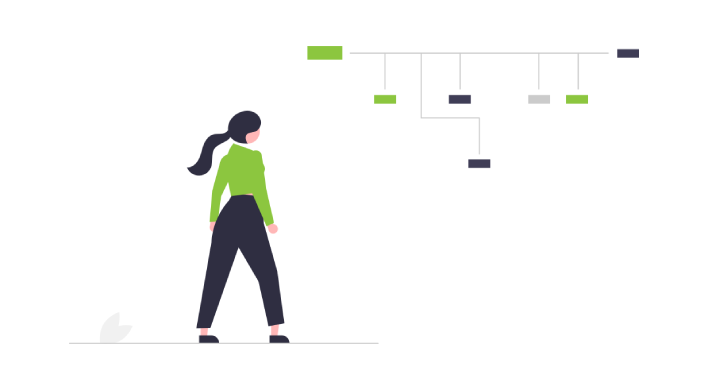Scopus Indexed Journals
One of the main objectives of researchers and academics is to publish their work in scholarly publications with a wide readership and influence. The research community holds Scopus Indexed Journals in high esteem because they provide comprehensive coverage of academic literature and are well known for their excellence and rigor. This extensive manual will cover the definition of Scopus Indexed Journals, their significance, and the procedure for submitting work to these esteemed periodicals.

Scopus Indexed Journals
One of the biggest abstract and citation databases, Scopus includes information on a variety of academic fields. Publications that are indexed and included in the Scopus database are called Scopus Indexed Journals. The inclusion of a journal in the Scopus index indicates that it meets specific standards of excellence and is considered a trustworthy source of academic content. It offers scholars a complete platform to access and browse a wide range of scholarly papers.
Benefits of Publishing in Journals with a Scopus Index
For scholars, publishing in Scopus Indexed Journals has a number of advantages:
- Broader Visibility: Due to the Scopus Indexed Journals’ worldwide readership, researchers may reach a larger audience, hence raising the profile and impact of their work.
- Credibility and prominence: The study gains credibility and prominence by being published in a Scopus Indexed Journal. It proves that the study passed a rigorous peer review procedure and complies with the criteria established by the academic community.
- Networking Possibilities: Participating in networking events and exchanging information with colleagues in related fields are made possible by publishing in respected publications.
- For professional development, publish in the Scopus Index. Journals help researchers build their professional reputations, which opens up prospects for financing, promotions, and other forms of career progression.
Criteria for Scopus Index Inclusion
Journals must meet certain criteria in order to be indexed by Scopus. Some essential criteria for inclusion are:
- International editorial board made up of well-known subject matter experts • Regular publishing schedule with constant publication quality • Strict peer review procedure maintaining high scientific standards
- Adequate citation analysis and references in published articles • Adherence to moral standards and best practices in publishing
The Scopus database is examined for prospective inclusion of journals that satisfy these requirements.
Identifying Journals in the Scopus Index
Academic researchers can utilize Scopus Journal Metrics or access the Scopus website to locate journals indexed in Scopus. Researchers can use Scopus’ searchable platform to get a complete list of indexed journals. CiteScore, SJR, and SNIP are a few more metrics and indicators provided by Scopus Journal Metrics that assist in evaluating the value and influence of journals.
The Best Journal to Choose for Publication
The following elements should be taken into account by researchers when selecting a journal for publication:
- Relevance: Choose a publication that aligns with your research question and is targeted towards your study’s intended audience.
- Impact: Evaluate the journal’s citation statistics, impact factor, and standing in the industry.
- Target Audience: To make sure the study reaches the correct people, take into account the journal’s readership and target audience.
- Open Access Options: Determine if the publication provides open access publishing options to increase the research’s exposure.
- Publishing Costs: Consider any publishing or article processing costs that the magazine may impose.
Scopus Index Journal Submission Guidelines
Each Scopus Index Journal has its own specifications for submissions. When preparing their work for submission, researchers should carefully read and abide by these instructions. Common factors to think about are:
- Manuscript formatting: Use the layout, typeface, citation, and reference styles recommended by the journal.
- Language and style: Make sure the manuscript is written in a clear, succinct form that follows the journal’s recommended style guidelines and uses good grammar.
- Ethical considerations: Adhere to ethical standards and disclose any possible conflicts of interest or ethical reservations pertaining to the study.
- Include any necessary supplementary materials, like datasets, images, or annexes, as per the journal’s specifications.
- Cover letter: Write a convincing cover letter outlining the research’s relevance and justifications for being appropriate for the publication.
Process of Peer Review in Scopus Indexed Journals
To guarantee the quality and authenticity of published research, Scopus Indexed Journals adhere to a strict peer review procedure. The following stages are often included in the process:
- Paper submission: Authors submit their papers along with any required supplementary materials through the journal’s online submission platform.
- Editorial Assessment: The editorial staff of the journal evaluates the manuscript’s conformity to formatting standards, ethical concerns, and alignment with the journal’s focus.
- Peer review: The study is assessed for scientific rigor, originality, methodology, and contribution to the field by reviewers who are subject-matter experts in the area.
- Reviewer Recommendations: Reviewers provide their opinions and suggestions to the journal editor, who bases his or her choice on them.
- Decision: The decision, which may be one of acceptance, amendment, or rejection, is communicated to the authors by the journal editor.
- Revision and Resubmission: If changes need to be made, the authors respond to the reviewer’s suggestions and submit a new draft of the paper.
- Final Decision: After reviewing the updated manuscript, the editor decides whether to accept or reject it.
Raising the Possibility of Approval
The following tactics may be taken into consideration by researchers to improve their chances of publication in Scopus Indexed Journals:
- Clearly respond to reviewer feedback Provide thorough replies to each reviewer’s criticism, detailing how each criticism was taken into account in the revision of the text.
- Improve technique and outcomes: Make sure the methods and results sections are strong, backed by pertinent data, and in line with the study aims.
- Include relevant literature: Conduct a thorough study of the literature and include pertinent references to place the research within the context of the field’s body of knowledge.
- Improve coherence and clarity: To make the work easier to read and to guarantee a logical flow of ideas, enhance the language, organization, and structure.
- Comply with the journal’s formatting requirements: Pay close attention to the requirements for headings, subheadings, citation style, and reference formatting.
- Use expert editing services: Before submitting the document, think about using expert editing services to enhance the language, grammar, and general clarity.
Keeping Publications’ Ethical Standards Up
In scholarly publication, upholding ethical norms is crucial. The following ethical guidelines should be followed by researchers:
- Plagiarism: Keep your work free of plagiarism by properly attributing and referencing any sources utilized.
- Authorship and Acknowledgments: Ensure that authors are properly credited and that organizations or people who made major contributions to the study are properly acknowledged.
- Potential conflicts of interest: Identify those that could have an impact on the study or how it is interpreted.
- Research Integrity: Follow accepted research standards and moral precepts while doing research in a truthful, open, and ethical manner.
Keeping tabs on citations and impact
Researchers may monitor the citations and effect of their work after publication in a Scopus Index Journal using a variety of methods and measures, such as:
- Scopus Citation Tracker: Track the evolution of the published article’s citation count over time.
- Altmetrics: Evaluate the article’s online effect, including blog mentions, news media mentions, and social media mentions.
- Maintain and maintain your researcher profiles on websites like ORCID and Google Scholar to highlight your papers and monitor citations.
Monitoring citations and impact may provide important information about the impact and audience of published research.
Answers to Frequently Asked Questions
Due to their vast coverage, strict peer review procedure, and global reach, Scopus Indexed Journals are highly recognized in the scholarly world. Publishing in journals with a Scopus Index raises the research’s profile, authority, and influence.
By accessing the Scopus website or using Scopus Journal Metrics, researchers may find Scopus Indexed Journals. These systems provide an extensive range of indexed articles as well as useful metrics for assessment.
Yes, journals must fulfill certain requirements given by Scopus in order to be included. Regular publishing schedules, an international editorial board, a rigorous peer review procedure, proper citation analyses, and adherence to ethical standards are some of these characteristics.
The likelihood of acceptance may be raised by carefully responding to reviewer concerns, improving methodology and findings, adding pertinent literature, boosting clarity and coherence, following formatting rules, and using expert editing services.
Researchers may get more exposure, reputation, networking possibilities, and potential for professional progress by publishing in Scopus Indexed Journals.
To keep track of citations and evaluate the influence of their published work, researchers may utilize tools like Altmetrics, the Scopus Citation Tracker, and their researcher profiles on websites like ORCID and Google Scholar.
Our Promises
- There is no word reduction.
- No changes to the context or the technical substance. Up to 0% less plagiarism.
- free certificate for editing
- Affordable Plagiarism Report Prices
- entire material editing and proofreading formatting and referencing in accordance with the standards
- rapid turnaround and reasonable price
Reach out to us at www.saairatechnologies.com or give us a call at 7604897174 if you need assistance with the Publication of your PhD project.
Our strengths
Guarantee of Service
PhD in Creativity
At Saaira Technologies, our mission is to provide a level of service unparalleled by any other organization. We take immense pride in our team of highly skilled and experienced pro-writers. We are excited to declare that, at Saaira Technologies, we never compromise when it comes to quality. Our commitment to excellence sets us apart in the industry.
Assurance and Privacy
At Saaira Technologies, we guarantee that your research and personal information will be treated with utmost confidentiality. We are committed to maintaining strict privacy and ensuring that your data is securely handled for internal purposes only. Your trust is of paramount importance to us, and we take every measure to safeguard your information.
24/7 Service Assistant
At Saaira Technologies, our team of experts is readily available round the clock on Facebook, WhatsApp, and Email, ensuring uninterrupted support and assistance. We operate 24 hours a day, 7 days a week, allowing clients to conveniently connect with us at any time. Your satisfaction is our priority, and we are committed to providing timely and reliable service.
Why choose us?
PhD help technical experts are very friendly and always ready to hear from you. Our experts are available at any stage of your PhD work.
The project you submit to us will be a hidden treasure and it will be confidential and maintained very secretly.
PhD help projects are always cost effective but we assure you that this will not affect the quality of your work.
PhD help developers are well experienced and professionals in their particular field. They are very eager and always on duty. They are readily available to help you in any situation and time. Our experts are available on the shop floor always ready to help you at any point of your PhD you are stuck.
Teams of Saaira Technologies
Business Development Executives


Data Scientist
Language Editing Division


Department of Journal Publications
What Sets Us Apart from The Competition?

